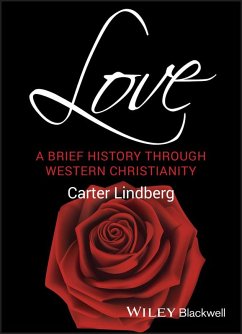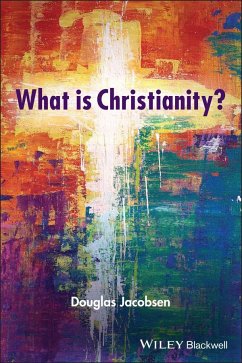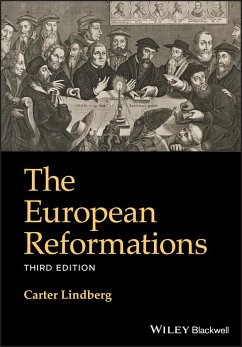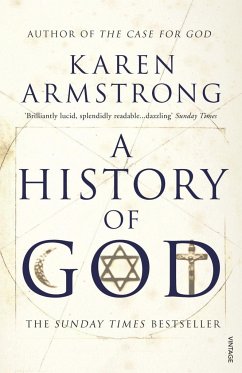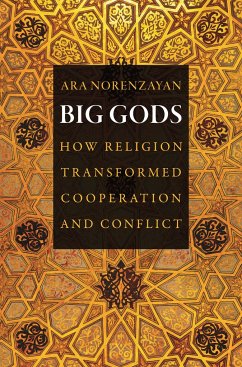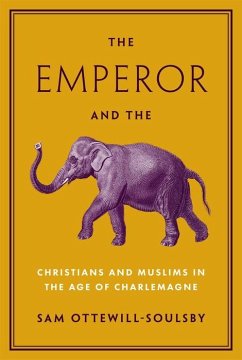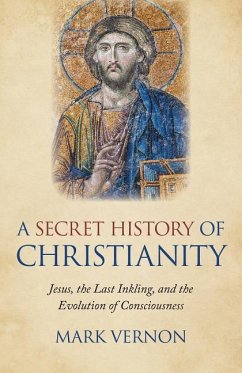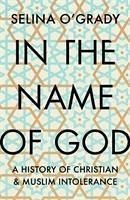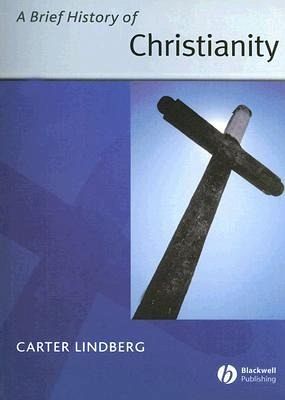
Carter Lindberg (Boston University)
Broschiertes Buch
A Brief History of Christianity
Versandkostenfrei!
Versandfertig in 2-4 Wochen

PAYBACK Punkte
19 °P sammeln!





Charting the rise and development of Christianity, Carter Lindberg has succeeded in writing a concise and compelling history of the world's largest religion. He spans over 2,000 years of colorful incident to give an authoritative history of Christianity for both the general reader and the beginning student.
Carter Lindberg is Professor Emeritus of Church History at Boston University. His recent publications include The Pietist Theologians (2004), The Reformation Theologians (2001), The European Reformations Sourcebook (1999), and The European Reformations (1996), all available via Blackwell Publishing.
Produktdetails
- Wiley Blackwell Brief Histories of Religion
- Verlag: John Wiley and Sons Ltd
- Seitenzahl: 240
- Erscheinungstermin: 1. September 2005
- Englisch
- Abmessung: 188mm x 167mm x 17mm
- Gewicht: 246g
- ISBN-13: 9781405110471
- ISBN-10: 1405110473
- Artikelnr.: 21462454
Herstellerkennzeichnung
Libri GmbH
Europaallee 1
36244 Bad Hersfeld
gpsr@libri.de
"There is much to praise here. Lindberg manages to explore many keyevents, issues, people and developments in a very concise manner.The text is very strong on theology and institutions with helpfulhistorical context. I particularly appreciated the attention toRoman Catholicism as well as Protestantism in the modern period.The book is brief, but the history of Christianity is vividlyportrayed here in all of its drama and complexity." JeffTyler, Hope College
"This is a wonderful book: accessible, concise, clearly written,and thoroughly absorbing. Lindberg has chosen to present theChristian tradition through the history of its principal ideas, butthese ideas are grounded in the flesh-and-blood reality of persons,their struggles for faith and for power, and the social andpolitical worlds they inhabited. Reflecting the author'serudition and wit, this cogent distillation of a complex past willserve beginners as an ideal introduction and old hands as athought-provoking synthesis." Christopher Elwood, LouisvillePresbyterian Theological Seminary
"This is a wonderful book: accessible, concise, clearly written,and thoroughly absorbing. Lindberg has chosen to present theChristian tradition through the history of its principal ideas, butthese ideas are grounded in the flesh-and-blood reality of persons,their struggles for faith and for power, and the social andpolitical worlds they inhabited. Reflecting the author'serudition and wit, this cogent distillation of a complex past willserve beginners as an ideal introduction and old hands as athought-provoking synthesis." Christopher Elwood, LouisvillePresbyterian Theological Seminary
Für dieses Produkt wurde noch keine Bewertung abgegeben. Wir würden uns sehr freuen, wenn du die erste Bewertung schreibst!
Eine Bewertung schreiben
Eine Bewertung schreiben
Andere Kunden interessierten sich für



